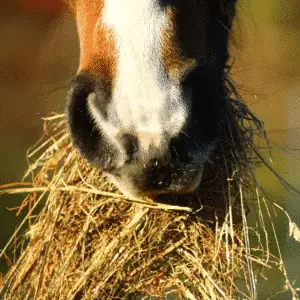
Is unlimited hay good for my horse?
Expert Advice: Kim Lina Pethahn, an independent feed consultant, wrote this article. Having hay available unlimited isn’t good for every horse: How much hay does
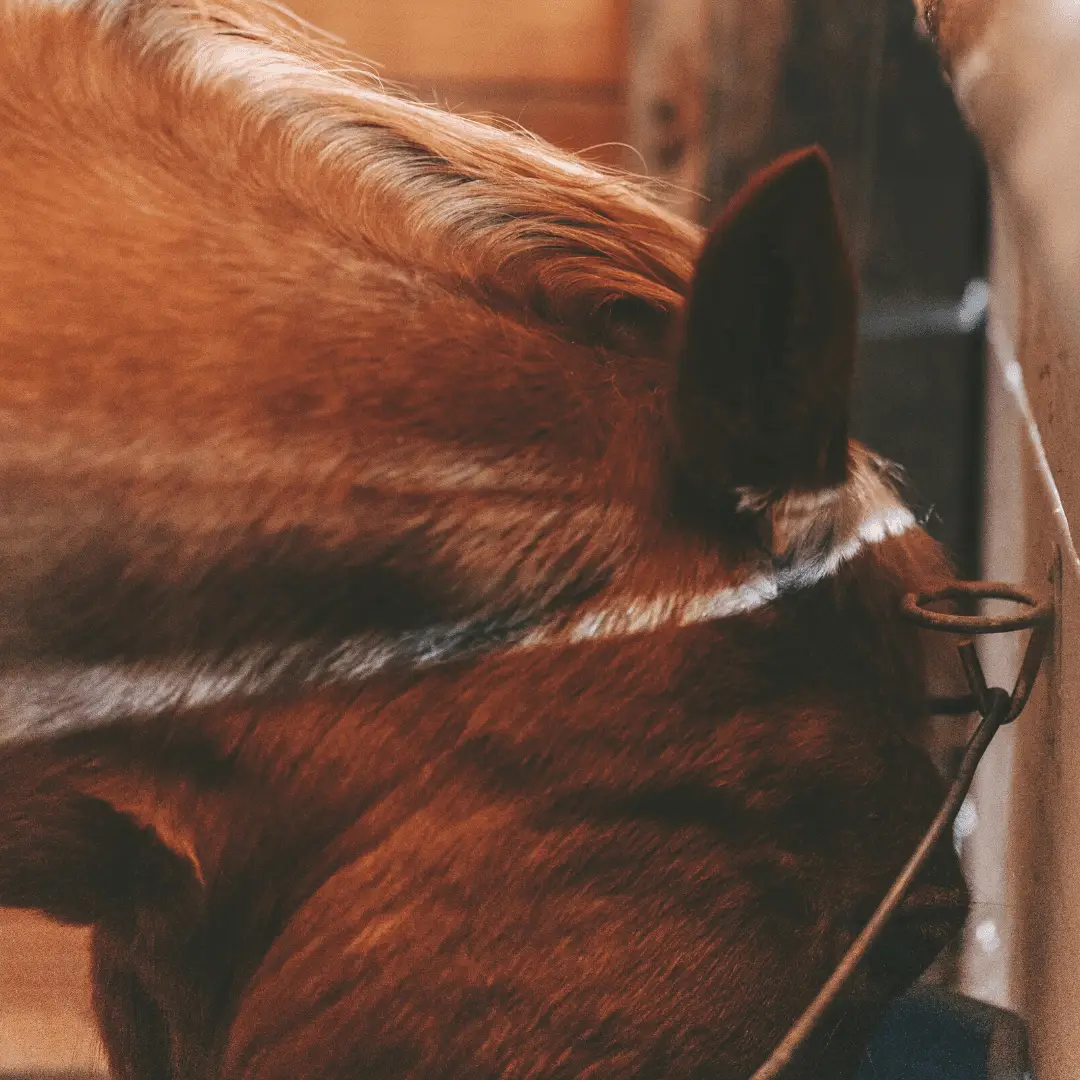
Expert Advice: Kim Lina Pethahn, an independent feed consultant, wrote this article.
Valuable and Nutrient-Rich Concentrated Feed
For over 2,000 years, oats have been of great importance in feeding. Even the Romans fed their “war horses” oats to give them an extra boost of energy to carry them into battle with vigour. Unlike wheat, barley or corn, oats have the advantage that the starch they contain is easier to digest and provides energy more quickly. Nevertheless, a bad reputation precedes it nowadays. It is said to “sting” and to contain too much protein. For these reasons, it had to give way to many cereal mixtures in the 90s. However, oats bear their bad reputation unjustly. It is highly digestible for horses and very healthy due to many valuable ingredients. Since horses often know what is good for them, most equines eat oats very gladly.
Oats have a very high crude fiber content, which makes the horse chew and salivate thoroughly while eating. This is important for the stomach and further digestion. Likewise, the mucilage contained are beneficial for stomach and intestines.
The amino acids important for the metabolism and muscle building in horses are contained in a high proportion in oats. Also many minerals (potassium, iron, calcium, magnesium and phosphorus) and vitamins (vitamins B & E) for good nerves, strong muscles and a healthy immune system. In trace elements, zinc and selenium are abundant in oats. Nevertheless, nowadays, due to the varying quality of the cultivated areas, feeding only oats as concentrated feed is not always sufficient for a mineral supply in line with requirements. Therefore, the addition of mineral feed is often necessary. For example, oats are rich in phosphorus and low in calcium. The mineral feed brings the calcium-phosphorus ratio back into balance with an increased amount of oats.
But what do oats do for horses? It provides them with quickly available energy. The easily digestible carbohydrates are converted by the horse into glucose and used as energy. Because of these properties, sport horses usually get oats. One kilogram of oats has twice as much energy as the same amount of hay in comparison. With an oil content of about 5%, 2 kg of oats provide the horse with 100 ml of oil. Other cereals have much less oil and more indigestible starch. These include, for example, barley and corn.
Exactly how much oats a horse should consume cannot be generalized, as it varies from horse to horse. First and foremost, the energy requirement should be ensured via hay, fresh grass and straw, which is already sufficient for many horses. Horses that move a lot, work regularly or are ridden for sport sometimes need additional oats to get enough energy. 1-2 kg per day is recommended (max. 1 kg per meal).
Whether the oats are yellow, white, green or even black makes no difference to the quality and nutrient content. Instead, the quality of the oats is expressed in a liter of weight. For this purpose, you can take one liter of oats and weigh it. Good quality oats should weigh at least 500 grams or more. Low-quality ones weigh less than 450 g. In addition, good quality oats have round rather than elongated grains. In addition to weight, hygiene is a measure for good quality oats. They should not have any gray discoloration, should be largely free of dust and impurities, and should have a nutty, aromatic odor.
Add your horse’s feeding plan in the Happie Horse App and never forget supplements, oats or anything else! Additionally, you can add the task “Feeding” to your To-Do-List and even assign different tasks to another person.
If you want to learn more about feeding, read the articles in the Happie Academy!
Download the Happie Horse App and receive a 7-day free premium trial!

Expert Advice: Kim Lina Pethahn, an independent feed consultant, wrote this article. Having hay available unlimited isn’t good for every horse: How much hay does
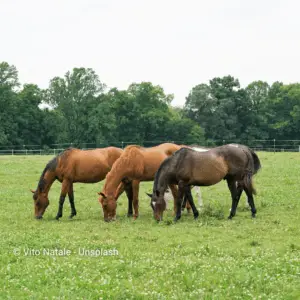
We have summarised everything you need to know about spring turn out to keep your horse healthy while changing its diet. Everything About Grazing Ready,

Vitamins are not only important for us humans, but also for your horse. That’s why it can make sense to supplement your horse with vitamins.
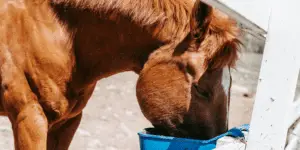
Minerals are of vital importance for horses to ensure health and optimal performance. They play a crucial role in maintaining a functional metabolism, bone and
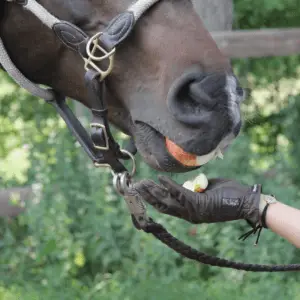
DIY treats for horses are a tasty and healthy alternative to the store-bought snacks found at horse farms and equestrian shops. They are easy to
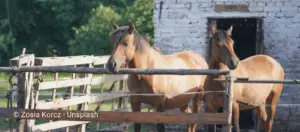
Expert Advice: Kim Lina Pethahn, an independent feed consultant, wrote this article. Which are non-toxic and should my horse eat them? Tree Bark and Shrubs